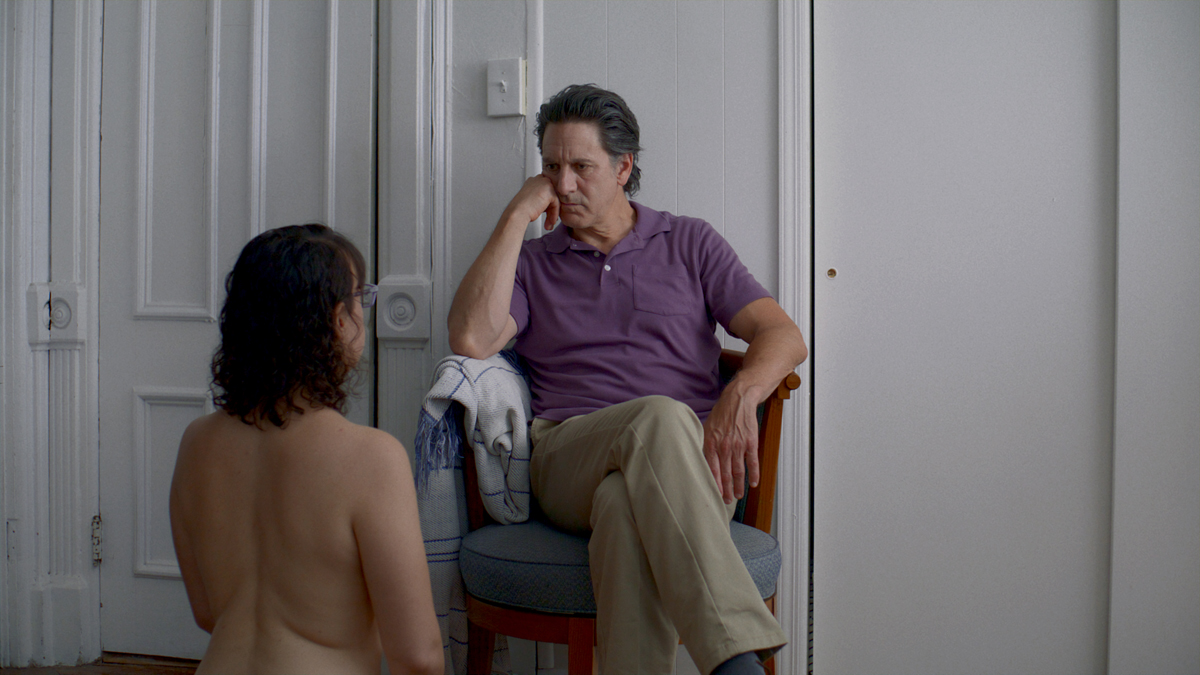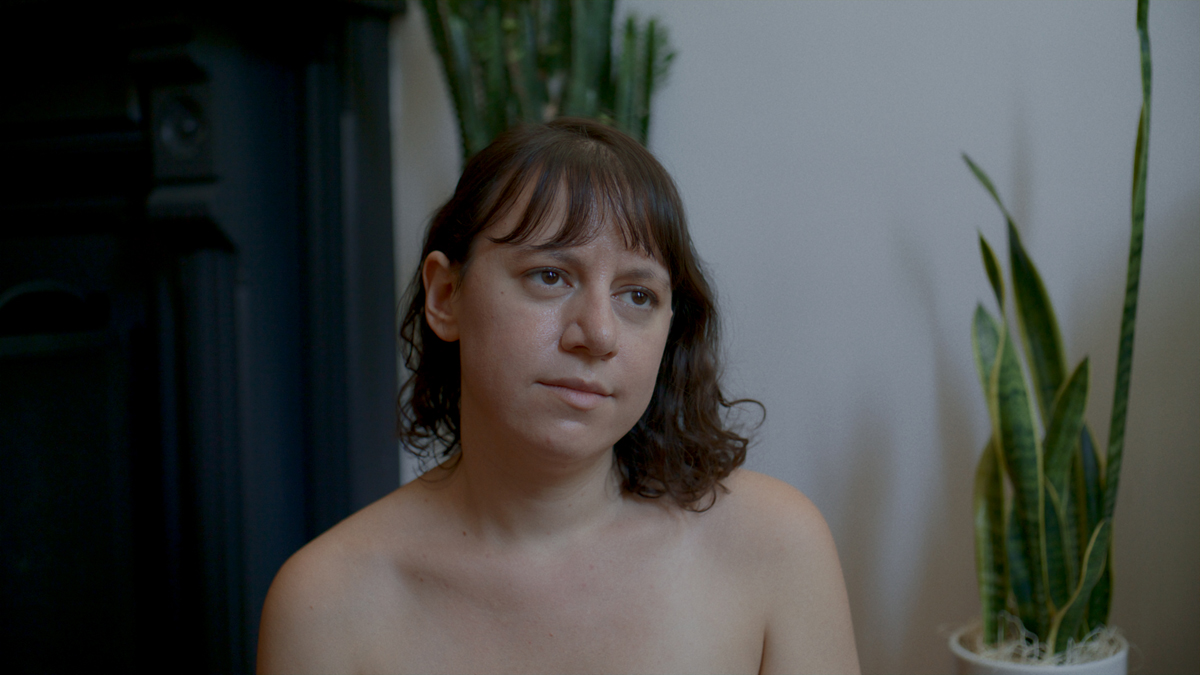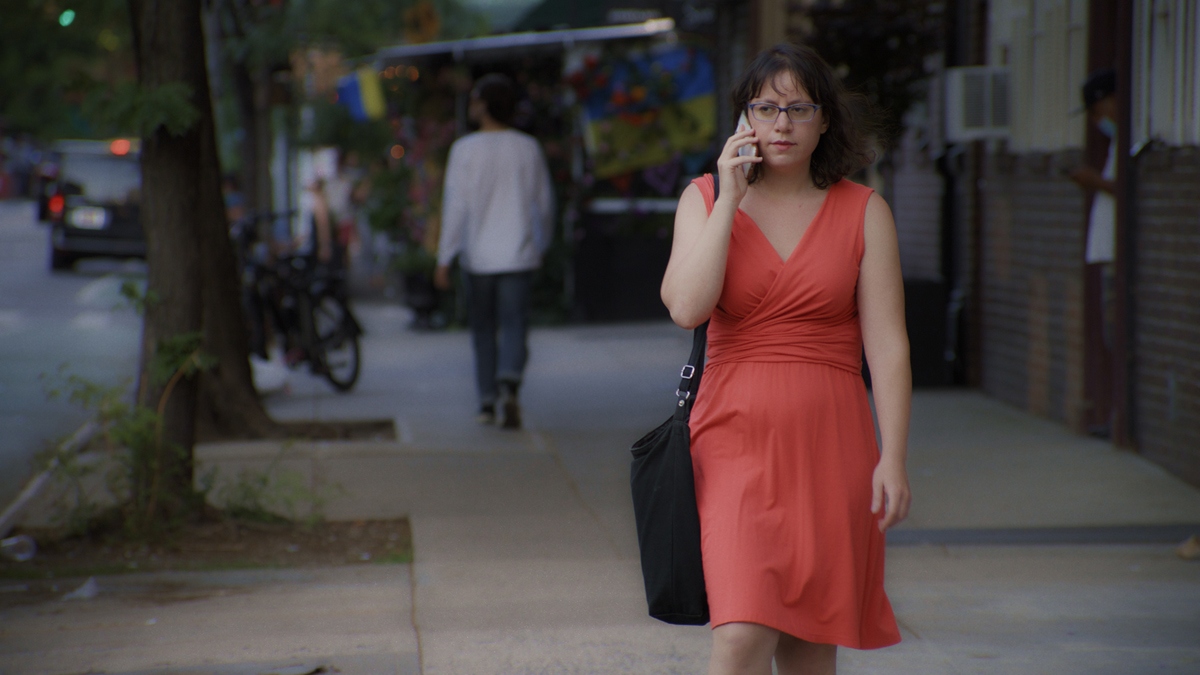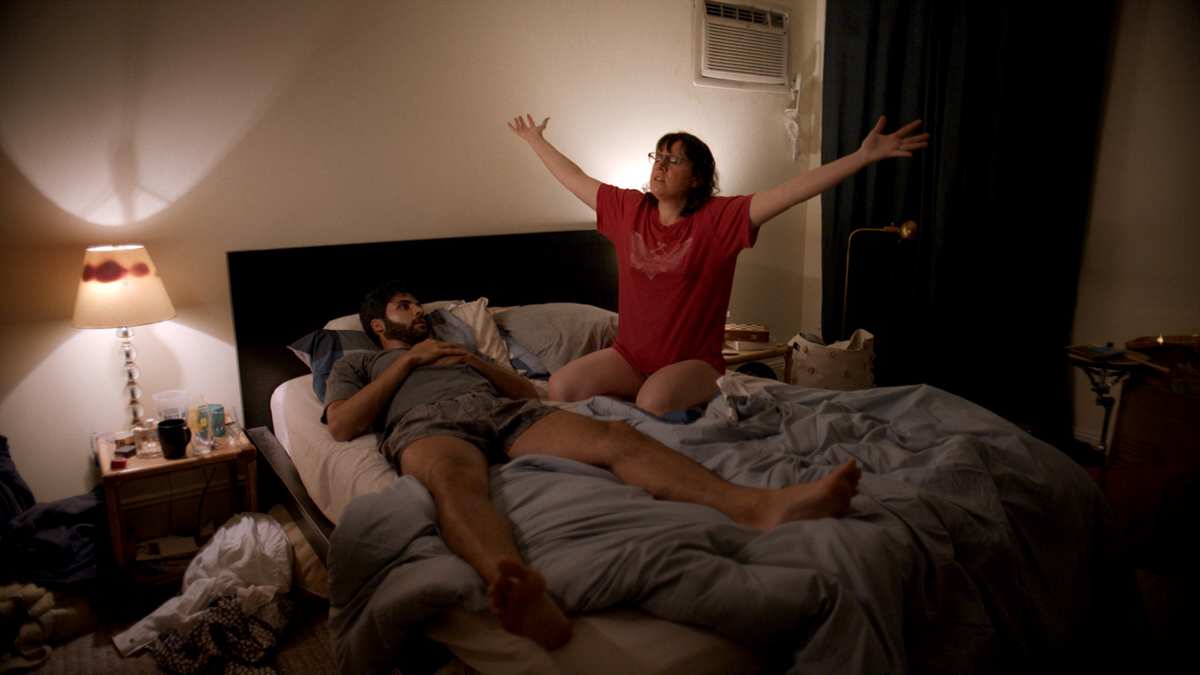 Beatrice Loayza
Beatrice Loayza
Edgelord provocations and shockingly average nakedness,
brought to you by Joanna Arnow.

Joanna Arnow as Ann and Scott Cohen as Allen in The Feeling That the Time for Doing Something Has Passed. Courtesy Magnolia Pictures.
The Feeling That the Time for Doing Something Has Passed, written and directed by Joanna Arnow, opens in theaters April 26, 2024
• • •
Can misogyny induce orgasm? Joanna Arnow, with judo-like precision, absorbs sexual humiliation and turns it into a source of pleasure; her hunger is so pathetic that it becomes an overwhelming discomfort—a force. In the opening scene of The Feeling That the Time for Doing Something Has Passed (Arnow’s first feature-length narrative), Ann, played by the writer-director herself, is stark naked in bed next to Allen (Scott Cohen), her prickly, middle-aged master in their BDSM relationship. He’s tucked in, wearing man-jammies, and drifting off to sleep, whereas Ann is eagerly contorted in his direction. We’ve seen some version of this before: the bombshells of film history always seem to be nude and twisted in sheets, while their men saunter around in pressed pants and undershirts—think of Brigitte Bardot, the camera panning over her velvety derrière, in Contempt. Arnow isn’t a svelte nymphet, but, as with Bardot, there’s something vaguely threatening about her nudity. It imposes, and so does Ann when she rubs herself against indifferent Allen, declaring how good it feels to be spurned. Ann is the submissive partner, yet her desire to feel small and pitiful is too big. Annoyed, Allen tells her, “Can you not?”
If her previous work is any indication, Arnow has a thing for imposition. In her 2015 short Bad at Dancing, the filmmaker plays a tenacious third wheel who’s got a habit of creeping into her roommate’s bed while she’s riding her boyfriend. In the 2013 cringefest i hate myself :), Arnow documents her romance with an unhinged pseudo-artist, his galling antics and ambivalent attraction to her seemingly fueling her obsession. The man is repellent, but the camera’s relentless interest in such a specimen calls attention to Arnow’s own perverse infatuation. At the end of the film, she shows her parents the footage that we have seen up to this point, which includes the couple fucking. There’s an edgelord quality to these provocations: horrified reactions are to be expected when you show your folks your sex tape.

Joanna Arnow as Ann in The Feeling That the Time for Doing Something Has Passed. Courtesy Magnolia Pictures.
Discomfiting as films like i hate myself :) may be, I also admire Arnow for not hiding behind an Oz-like curtain; in doing so, she continues a tradition of self-portraiture practiced by artists like Chantal Akerman and Lena Dunham. Arnow, like her predecessors, weaponizes her shockingly average nakedness and, like Dunham in particular, delivers her shocks in a listless deadpan. Yet her millennial humor stands out for the abject nature of her eroticism—a combination made even more potent by the fact that Arnow stars in each of her dryly comic films. Her daring is all the more pronounced because her self-degradation rebuffs easy identification. Arnow, with her Daria demeanor, has created an almost Chaplinesque persona from the parts no lady should care to show.
Arnow’s latest draws from her usual bag of tricks—namely, her straight-faced exhibitionism and sardonic treatment of unconventional sex. But, as the unwieldy title of her film suggests, she places them in an anxious, transitional temporality. Arnow’s monotone stylings and static compositions convey the crushing awkwardness of having failed to move on—in other words, to grow. The film is composed of vignettes that situate Ann’s sex life within the context of her unremarkable everyday rituals. She attends meetings at her comically indeterminate office job, engages in stunningly banal conversations with her parents and randos at parties, microwaves the same brand of pre-prepared curry each night. Futility and obsolescence hang in the air. At Ann’s corporate gig, they are made mockingly literal: she receives a one-year anniversary plaque despite having worked there for over three years; her current project is aimed at creating a product that will make her position redundant.

Joanna Arnow as Ann in The Feeling That the Time for Doing Something Has Passed. Courtesy Magnolia Pictures.
The film is divided into five chapters, each one named after the man (or men) with whom Ann is involved—they are her only thrill, a joke in and of itself. Ann gets off on being told what to do—the more unusual the request, the better. In one scene, Allen, barking orders like a dog trainer, has her run back and forth from the wall to the bed, where she kneels over him and sucks his nipple. It’s a funny, ridiculous image, but there’s also a candor to it that underscores the cerebral nature of BDSM erotics, which aren’t all that sexy when you’re on the outside looking in. When Ann experiments with other doms, she finds one whose tastes border on the cliché—with him, Ann wears a snout, pig ears, and a leather harness, making her long for Allen’s fresh imagination.
Allen, a gruff divorcé, repeatedly asks Ann how old she is and where she went to school. Detached master that he is, he doesn’t bother retaining such petty details, though Cohen’s aloof manner bears a whiff of paternal irritation (the actor’s stint on Gilmore Girls, as a dreamboat lit teacher, certainly enhances Allen’s cruel-daddy bearing). The two began seeing each other when Ann was twenty-four. Now she’s thirty-three, a sad fact constantly brought to the fore by Allen’s supposed memory lapse. Ann has never had a real boyfriend, and though she enjoys an easy rapport with Allen, he doesn’t really like it when she talks.

Babak Tafti as Chris and Joanna Arnow as Ann in The Feeling That the Time for Doing Something Has Passed. Courtesy Magnolia Pictures.
Arnow sees true emotional intimacy—the kind you develop with a serious partner—as the next frontier for her eager sub. Even after Ann makes herself exceptionally vulnerable—naked and bent over, she dutifully follows Allen’s command to pull apart her butt cheeks, displaying her anus to him—her exposure during this scene scans as trite, given the film’s devotion to her sex life and the regularity with which Arnow bares it all anyway. More startling are the parts that Ann reveals when she embarks on her first real relationship, with Chris (Babak Tafti), the focus of the film’s final chapter. With this pleasantly dorky dude, Ann sings showtunes from Les Misérables and geeks out over Penny Marshall; picnics and strolls through botanical gardens; musters the strength to send cutesy, affirming texts. Her previous, kinkier life appears more vacant next to this delicately blooming love, in which each step toward deeper entanglement carries a palpable hesitation, a fear of rejection that stings greater than the whip. Arnow seems to break out, ever so slightly, from the performative armor of her sardonic persona: here is the human who, like a prism, changes with a turn in the light, showing herself to be beautiful. Crucially, this concluding section is not a testament to the superiority of vanilla romance, but an ode to renewal and the power of wanting more.
Beatrice Loayza is a writer and editor who contributes regularly to the New York Times, the Criterion Collection, Film Comment, the Nation, and other publications.